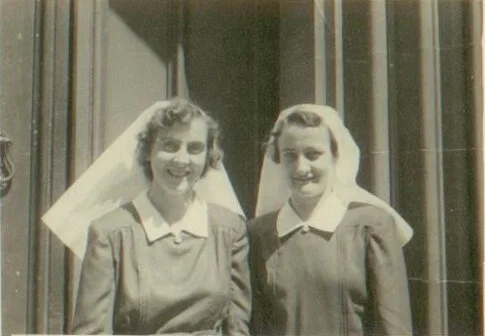Honouring Deaconess Dorothy Black (nee Lennox) Sydney’s longest serving deaconess
Thursday 11 March, 2021
Mrs Dorothy Black (nee Lennox) is Sydney’s oldest living deaconess and today celebrates 70 years of being set apart for Christian service as a deaconess with the Anglican Church.
On this day, 11 March 1951, Dorothy was set apart as a Deaconess for Christian Service at St Andrews Cathedral, to be wholly committed to live and work serving Christ and his Church.
Deaconesses worked as lay ministers, serving Christ and living out the word of God in practical ways between 1891 and 1991, after which the role of deacon was opened to women.
Deaconesses have left a legacy. They pioneered many of the first schools and hospitals in Australia, being some of the first to offer palliative care at the turn of the century.
The women set up children’s and girls home, taught scripture in schools and churches and worked as missionaries both in Australia and overseas. Dorothy was one such deaconess.
Dorothy (left) pictured with Jean Standfield in March 1951.
It has been Dorothy’s desire to learn, to know God more and bring others under the sound of the gospel of grace, which she herself had experienced, that has motivated her service.
The stories she heard and memory verses she collected in Sunday School in Lithgow planted a seed that was watered at Deaconess House, now known as Mary Andrews College, where Dorothy received theological training and preparation for ministry and mission.
After two years of rigorous theological education, Dorothy began her ‘real world’ parish experience with Reverend John Dahl at a church in Alexandria in 1949.
She worked across nine different parishes from 1949 to 1987 and was the warden for two girls’ homes – Pallister House in Greenwich and But-Ha-Gra in Croydon. As a CMS missionary, Dorothy worked on Groote Eylandt, the largest island in the Gulf of Carpentaria from 1974 until 1985 years and briefly worked in PNG with Asia Pacific Christian Mission.
Dorothy loved teaching scripture in public schools and saw conducting church services and baptising infants as a particular privilege. Her work often meant sacrifice, taking initiative and self-discipline but she remained confident of God’s protective care and provision.


